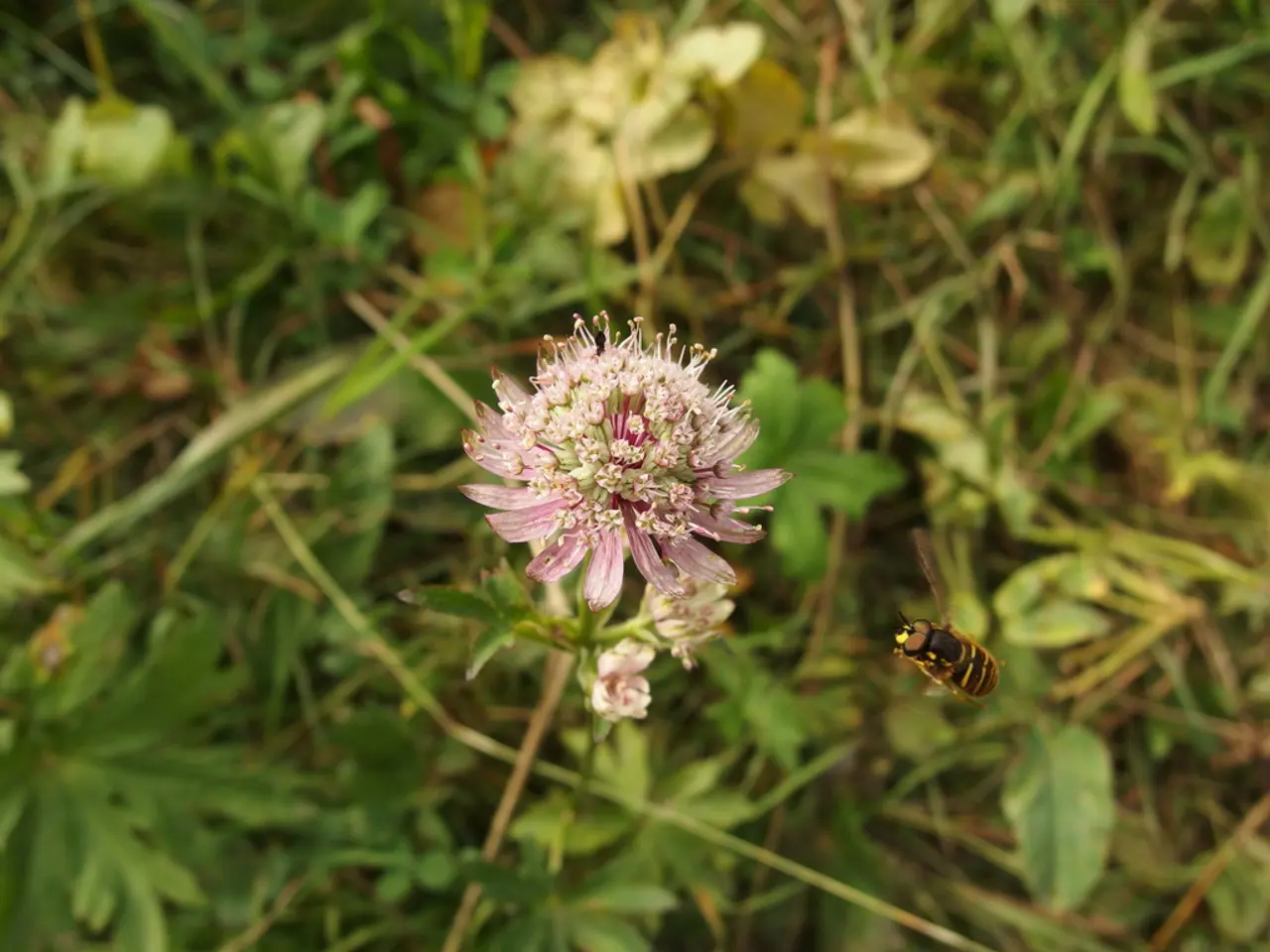Organic Methods for Managing Garden Pests
In the quest for a sustainable and eco-friendly garden, implementing natural pest control methods has become increasingly popular. These strategies not only promote a balanced ecosystem but also contribute to maintaining sustainable agriculture systems and fostering healthy, thriving gardens.
One such approach is companion planting, which involves planting certain species alongside others to deter pests without relying on chemicals. For example, garlic and sage are known to repel insects that can harm vegetables[1][5]. This method supports healthy plant growth by preventing pest-related damage, enhancing biodiversity, and promoting ecological balance[1][5].
Another effective strategy is the use of biological controls, such as ladybugs, lacewings, parasitic wasps, and microbial pesticides like Bacillus thuringiensis (Bt)[3]. These natural predators, parasites, and pathogens help manage pest populations, enhancing biodiversity, promoting long-term pest management, and reducing the risk of pest resistance to pesticides[3].
For those seeking DIY solutions, organic sprays and barriers can be made using non-toxic ingredients. Neem oil and garlic sprays are natural repellents that can deter pests without harming beneficial insects[2]. These sprays are non-toxic and environmentally friendly, providing an immediate solution to pest issues without long-term ecological damage[2].
To attract beneficial insects like ladybugs and lacewings, creating a welcoming habitat is essential. This can be achieved by planting diverse flowers, avoiding chemicals, and providing shelter. Choosing native plants, creating water sources, companion planting, and mulching with care are practical tips to create an ecological garden that supports beneficial insects[4].
In addition to these methods, soil health enhancement plays a crucial role in natural pest control. Improving soil fertility through organic matter and soil amendments creates a resilient ecosystem. Balanced soil nutrients make plants more resistant to diseases, reducing the likelihood of pest infestations[1].
By following these tips, gardeners can expect a significant increase in beneficial insect activity, creating a bustling ecosystem. A diverse garden not only attracts beneficial insects and pollinators but also improves soil structure and nutrients. For instance, certain plants, when used as companion plants, can help each other grow and create a healthier environment[4].
Simple homemade pest repellents can also be effective. The vinegar solution, made of 1 part vinegar and 3 parts water, is used to control weeds and unwanted pests. Essential oils, such as peppermint, lavender, or tea tree oil mixed with water in a spray bottle, are used to repel pests and enhance the garden's smell[6].
Marigolds, when planted alongside vegetables, attract ladybugs that feed on aphids. By choosing to plant marigolds, gardeners can naturally increase the population of these beneficial insects[4].
In conclusion, implementing natural pest control strategies is crucial for maintaining sustainable agriculture systems and promoting healthy, thriving gardens. These strategies not only contribute to a balanced ecosystem but also support pollination, enhance soil health, promote biodiversity, and reduce chemical use, thereby aligning with ecological principles and promoting ecosystem resilience[2][3].
- In addition to plants, introducing ladybugs, lacewings, and other beneficial insects into the garden helps manage pest populations naturally[3].
- By choosing organic, eco-friendly food-and-drink options, consumers contribute to reducing the demand for industrially-produced produce that may rely on harmful pesticides[7].
- When paired with vegetables, marigolds promote healthy-cooking by keeping the garden pest-free and improving the quality of home-grown produce[4].
- Skin-care products that contain organic ingredients and are cruelty-free align with the principles of environmental-science and promote a healthier lifestyle[8].
- In the realm of fashion-and-beauty, opting for sustainable clothing made from organic materials helps reduce the fashion industry's environmental impact[9].
- Gardening is both a hobby and a means to promote food-and-drink self-sufficiency, as well as home-and-garden sustainability by implementing natural pest control methods[10].
- In alignment with the health-and-wellness movement, focusing on healthy-cooking techniques and selecting organic vegetables from an eco-friendly garden contributes to overall well-being and a more sustainable lifestyle.




